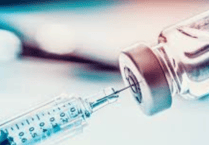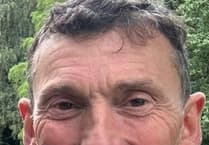Words such as ‘diversity’ and ‘inclusivity’ are used so often these days they risk losing their meaning.
Sprinkled liberally in firms’ PR blurb, it’s also had the unfortunate effect of diluting the significance of what it’s actually like to feel excluded from the rest of society.
That’s often the case for people who’ve been diagnosed with an unusual medical disorder. One such person is Caron Mills, a 24-year-old from Kingsbridge with Poland Syndrome (PS), a birth condition so rare it doesn’t even appear on the NHS website’s list of conditions and ailments.
Surprisingly, it’s also baffled some of her own doctors.
“A lot of the time I have a short notice appointment, and every time I meet a new surgeon or doctor they don’t look up my condition. You tell them you have Poland Syndrome and I’m sat there with my dad educating them on what it is,” she says.
People with PS often have missing or underdeveloped chest muscles, which can also affect the shoulder, arms and hands, resulting in short, webbed fingers. Little is known about the causes, although experts believe it could be due to a blockage of blood flow while the baby is developing in the womb during the critical sixth week of gestation.
Experts consulted by this paper agree that there are approximately 2,000 people in the UK with PS - 16 in the South West - adding that the condition may be underreported.
This would partly explain why it’s flown under the media’s radar, even as pop star Matt Goss announced in 2022 that he had it, prompting a flood of messages of support from people saying they had PS as well.
There has been progress of late. The Birmingham Women’s and Children’s NHS Foundation Trust opened the UK’s first PS clinic in 2021 at a £37.5 million state-of-the-art building, helped largely by the public’s donations.
That’s now. However, growing up with the condition was particularly challenging for Caron because she not only faced bouts of corrective surgery but the rejection of her childhood peers.
“I remember being in the playground in primary school and you would get people staring at my hand and children running away because they had never seen anything like it – it was definitely hard to be a teenager in a town like Kingsbridge.”
Fortunately for her, she enjoyed the support of her family and a group of friends, even if the sense of isolation was hard to shrug off.
She turned to social media to reach out to other people with PS, spurred on by a sense of urgency borne from a belief that she was the only person in Devon with the condition.
She eventually contacted the PIP-UK Poland Syndrome Charity in Stockport and is now in charge of their social media posts, creating Instagram reels for the charity and “giving the CEO ideas on what to post”.
Last month marked a pivotal moment in her life when she took part in a unique adaptive clothing fashion show in Birmingham which drew together people from all across the world.
“It was definitely nerve-racking because of the extent of what we were doing. It was the first time I met anyone with Poland Syndrome, so I felt very emotional,” she says.
Thanks to the fashion show, which attracted some 200 people, the media is now engaging increasingly with the charity - and learning about the disorder.
Another fashion show is being lined up in September, this time in Manchester, but just as importantly, having met others with the condition has given her an added impetus to do more to raise awareness of PS and break down barriers.
“I would like to get Poland Syndrome and my story recognised. I’d like to get people talking about it – especially the people in Kingsbridge and Salcombe who read this. Not just PS but anyone with any sort of disability, and to get away from that stigma that they’re different and that they shouldn’t be talked to.”
PIP-UK is the only charity in the country currently supporting people with PS. Its CEO, Sam Fillingham advises anyone with the condition who feels isolated to reach out to the organisation.
“We have recently been awarded a national lottery grant and hope to open a South West Branch of PIP-UK in the next 12 months to help support more people in Devon and the region. We are looking for members and volunteers in these region to build and grow this branch.”
PIP-UP can be contacted at https://pip-uk.org/




Comments
This article has no comments yet. Be the first to leave a comment.